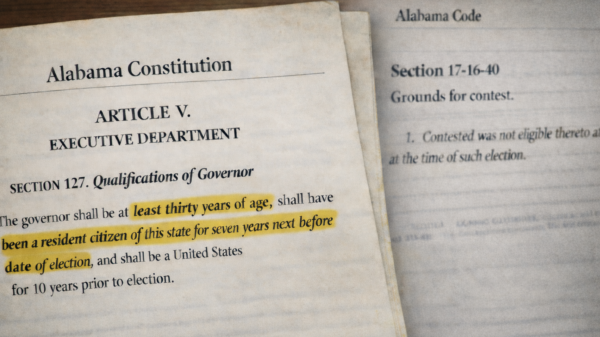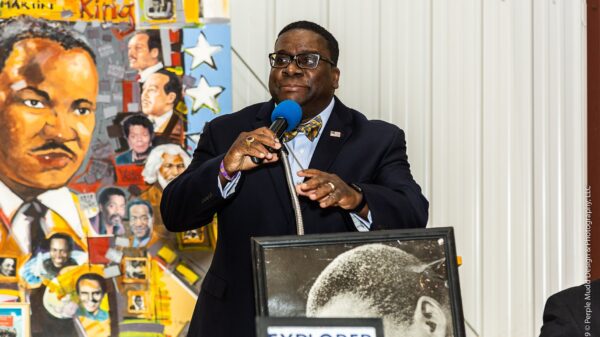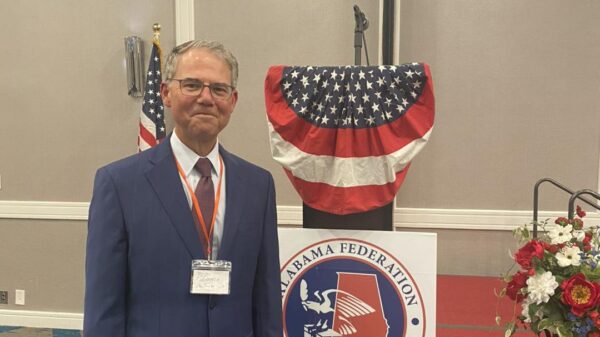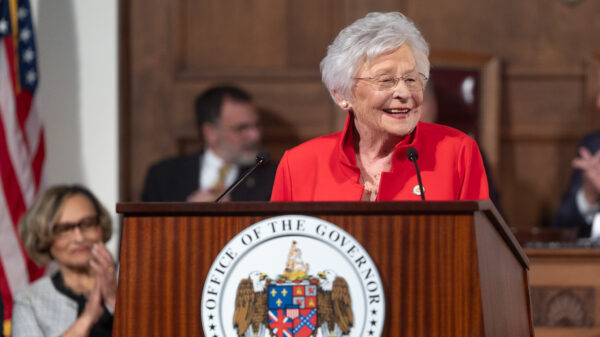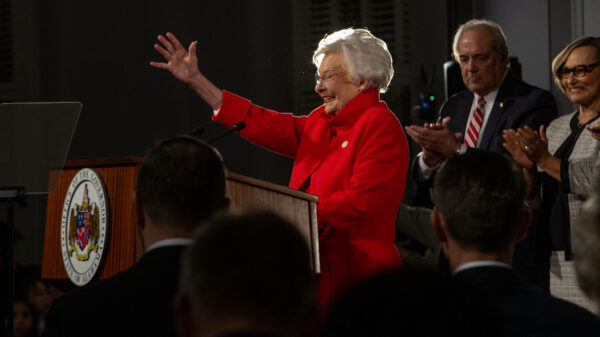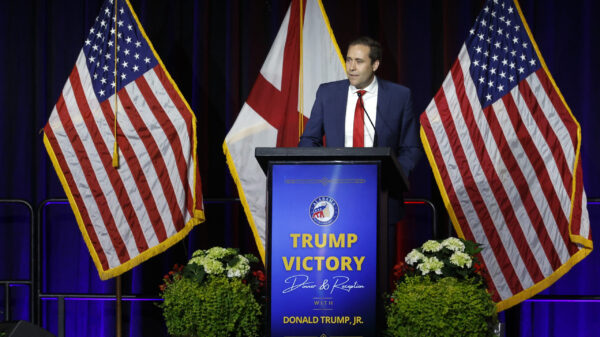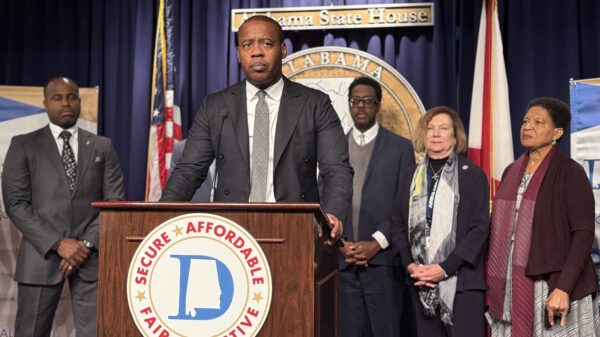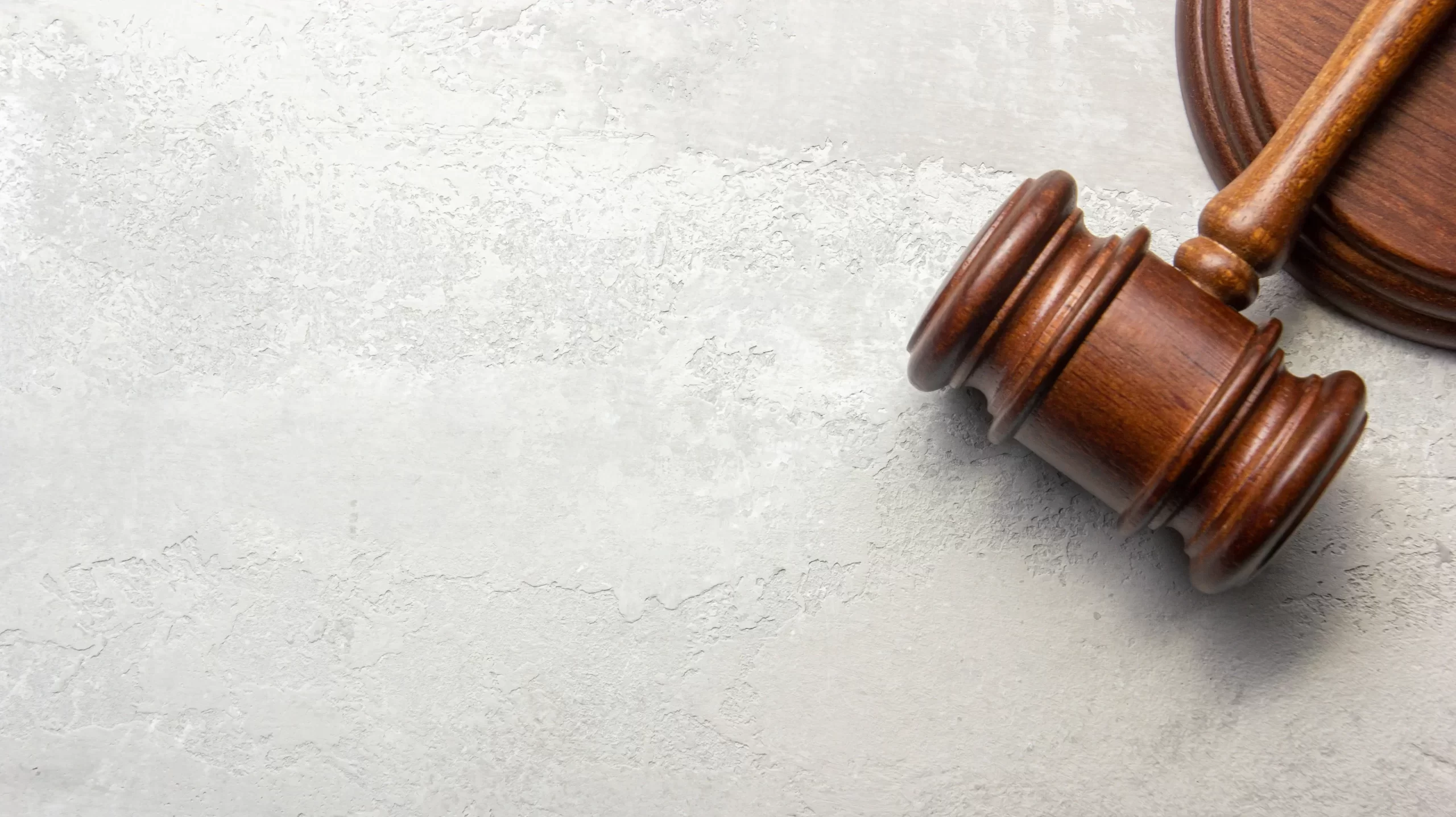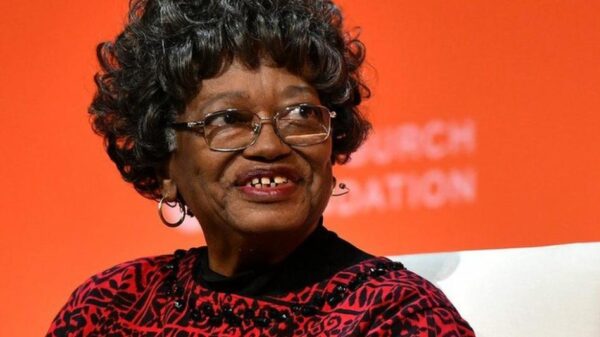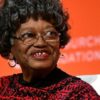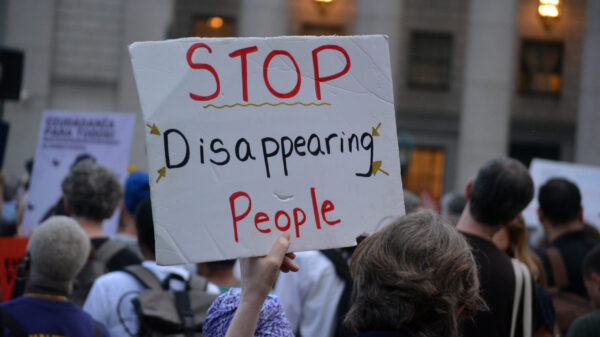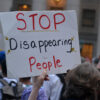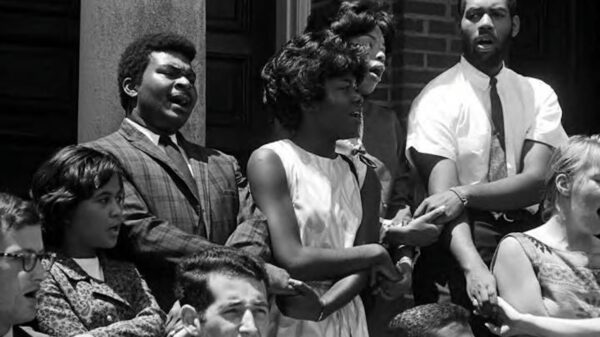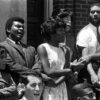A panel of international judges, including retired U.S. Supreme Court Justice Anthony Kennedy, warned against actions by the Trump administration they say will curb judicial independence.
The legal forum held Thursday by Speak up For Justice—entitled “Global Threats to the Justice System: A Warning to America”—featured judges from across the globe speaking on the importance of judicial checks on the executive branch.
The webinar invited members of the legal community to hear remarks from Kennedy alongside Eleazar Javier Saldivia, a former judge from Venezuela; Dorota Zabludowska, a judge from Poland; and Justice Richard Goldstone, a retired judge from the Constitutional Court of South Africa.
Kennedy and Goldstone spoke regarding judicial independence’s importance to the rule of law and promotion of democracy in the U.S. and South Africa, as well as actions taken by the Trump administration they said are putting the rule of law at risk.
Saldiva and Zabludowska, meanwhile, spoke on the degradation of judicial independence in their countries following consolidations of power undertaken by the legislative and executive branches.
“In too many democracies today, there is a declining respect for the rule of law and an increase in right wing populism and undermining of judicial independence. This includes the United States and threatens its leadership of the democratic world,” Goldstone said.
“The rule of law cannot function without an independent judiciary that is respected by the other two branches of government; the executive and the legislative,” he added.
Goldstone pointed to judicial rulings during the Civil Rights Movement that helped dismantle segregation, which he said helped inspire him and his peers to rule against South Africa’s Apartheid system.
“For many years the United States played an important role in fostering the rule of law in South Africa,” Goldstone said. “Many of our judges, and again, I was privileged to be one of them, were inspired by the Civil Rights Movement and the role the regular judge has played in applying the rule of law and especially the decisions of some remarkably courageous Southern federal judges.”
Goldstone said collaborations between American and South African judges and lawyers helped keep judicial independence alive in South Africa, allowing judges and lawyers to work against Apartheid.
This included the American Bar Association’s work in South Africa, such as bringing American judges like Nathanial R. Jones and Thelton E. Henderson to speak in the country, which Goldstone said “nurtured the skills of young Black lawyers,” many of whom he said went on to serve as judges.
Goldstone also emphasized the importance of meetings coordinated by the Aspen Institute between South African and American judges and human rights lawyers.
“It was at such a meeting in Mobile, Alabama in 1984 that I was privileged to meet Justice Kennedy,” Goldstone said. “Our friendship has continued over the succeeding 41 years.”
Goldstone and Kennedy highlighted and spoke against the Trump administration’s attacks on judges who have issued rulings unfavorable to Trump’s policies.
The event came two days after the Trump administration’s U.S. Department of Justice filed a lawsuit against all 15 of Maryland’s federal judges over an order blocking the immediate deportation of migrants who have challenged their removal.
Since Trump took office, federal lawmakers have also filed legislation aimed at stripping federal judges of their national injunction powers and impeaching federal judges deemed “disloyal” to the president.
Goldstone spoke against the Trump administration’s decision to sue Maryland’s federal bench, as opposed to appealing the decision to a higher court, describing it as an attack on the judicial branch’s right to check the policies of the executive.
“The influence of the United States in countries that are now placing the rule of law in jeopardy has been severely weakened by the present administration in Washington,” Goldstone said. “There have been personal attacks on the independence of some judges who have ruled against the administration. Those judges have carried out their solemn duties and complied with their oaths of office.”
Kennedy shared remarks expressing his belief in the judicial branch’s importance in ensuring political policies and the debates surrounding them remain legal and civil.
“Dialogue is of tremendous importance because the rest of the world, many in the rest of the world, look to the United States to see what democracy is, to see what democracy ought to be,” said Kennedy. “And if they see a hostile, fractious discourse if they see a discourse that uses identity politics rather than to talk about issues, democracy is at risk, freedom is at risk. Aristotle said that freedom can die, democracy can die, and he was right.”
Kennedy also spoke out against the growing role of partisan politics in judicial appointments.
“We have to honor the fact that this judicial independence means that judges are not put on the bench so they can do as they like. They are put on the bench so they can do as they must,” he said.
“One of my concerns is that partisanship plays too big a part in confirmation. Of course, Republican, Democrat has a meaning, but the Congress must focus much more on temperament, learning, background, experience, not just politics and again, to remind the public that judges should decide political issues, but not in a political way,” Kennedy continued.
Saldivia and Zabludowska both spoke regarding attacks on judicial independence undertaken by the executive and legislative branches of their home countries.
Zabludowska related events in the U.S. to recent attacks on Poland’s judicial system by the administration elected in 2015.
“You cannot assume full power if someone controls you,” she said.
Zabludowska said from 2015 to 2023, 23 of the 25 members of Poland’s National Council of the Judiciary, the body responsible for judicial appointments, were replaced with appointees favorable to the ruling party’s policies.
Alongside packing courts with favorable appointments, the ruling party was responsible for a public campaign which attacked dissident judges as enemies of the state.
Saldivia, a former federal judge of the Anzoátegui State Circuit in Venezuela, was forced to flee his country following his refusal to overturn a ruling to free a student protestor in 2014.
“The collapse of Venezuela’s judiciary is not just a personal story, it’s a warning about how democracy can die through legal means,” Saldivia said. “Dictatorship in Venezuela didn’t arrive with tanks. It came dressed in Judges robes. I witnessed this transformation from inside the system.”
“The destruction of the judiciary’s independence was slow and calculated,” he said, “achieved not through military forces but through laws, decrees, executive orders and courts that no longer served the people of Venezuela.”

